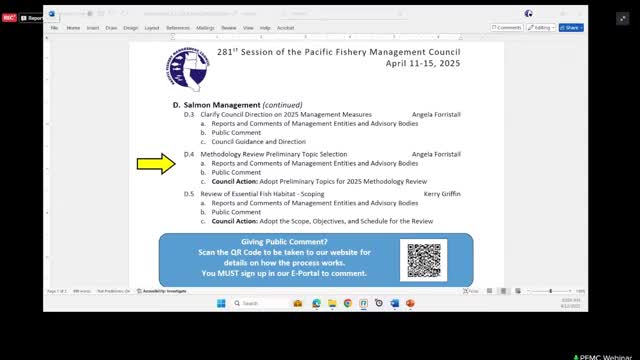Article not found
This article is no longer available. But don't worry—we've gathered other articles that discuss the same topic.
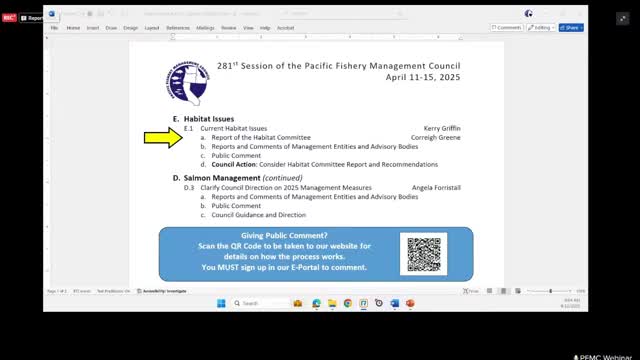
Habitat Committee reports coho gains, Klamath dam effects and NEPA changes; council to consider committee recommendations
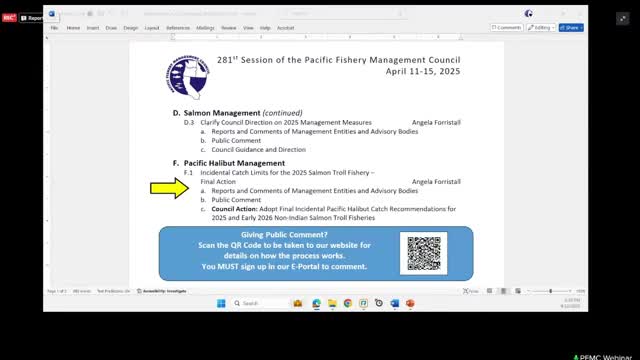
Council keeps 2025 incidental halibut limits for salmon troll fishery; SAS recommended status quo
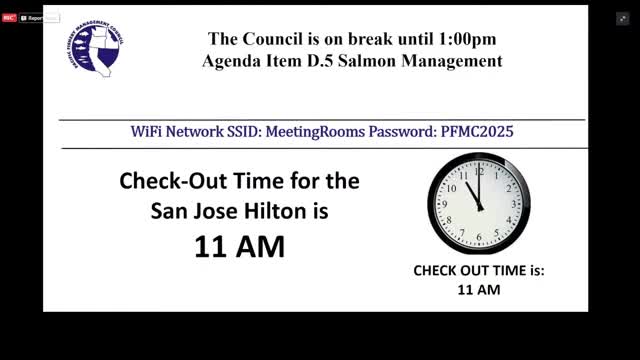
Council preliminarily adopts streamlined research-and-data needs list; requests advisory edits for June final
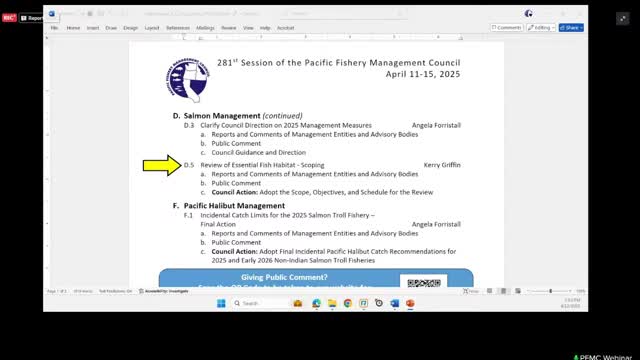
Council launches scoping for Pacific salmon EFH review; staff to issue call for information
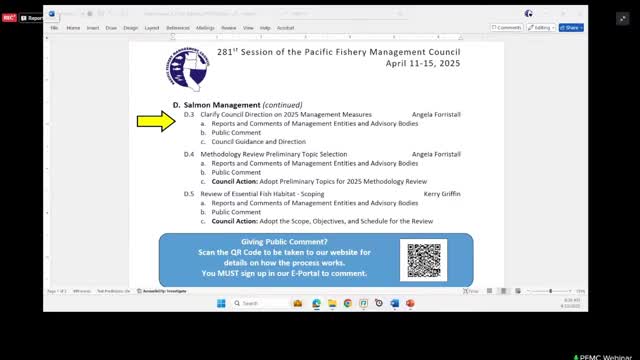
Council holds 2025 salmon management measures open, asks STT for more analysis; public commenters urge habitat fixes
